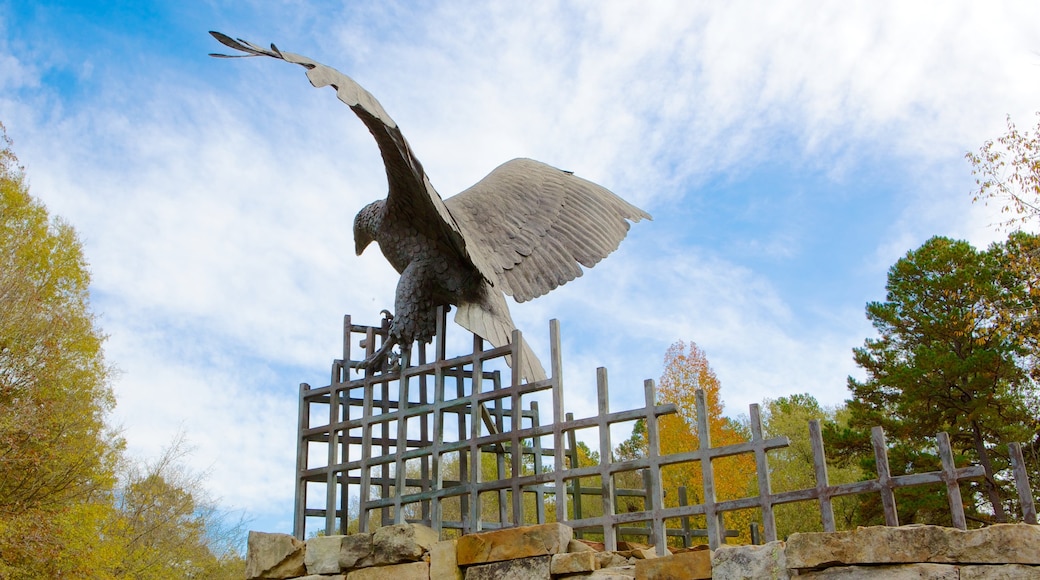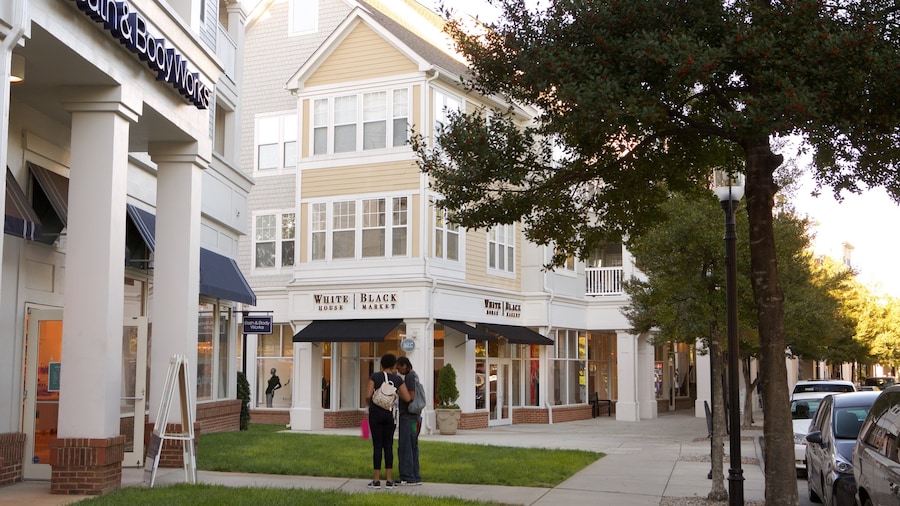Discover 23 different species of raptors at this outdoor nature center that assists in the rehabilitation and release of over 700 birds of prey a year.
The Carolina Raptor Center is a non-profit organization that aims to educate visitors on raptors, also known as birds of prey. The center maintains enclosures over a 0.75-mile (1.2-kilometer) nature trail. The zoo-like setup allows visitors to get close to the majestic birds with a variety of educational exhibits and special programs year-round.
Watch a vulture feeding session presented by one of the center’s knowledgeable docent volunteers. See native and exotic birds in free flight at a highflying summer flight show. Discover select resident raptors in the Raptor Encounters program. Learn from the center’s educators about conservation, training and species facts. You can also see the Family Corvidae and Raptors of the Silver Screen educational exhibits to learn more about these magnificent birds.
Train, feed and care for the resident birds with the Keeper for a Day program. You will work alongside the Carolina Raptor Center’s staff to experience the raptor rehabilitation first hand. Train hawks, owls and falcons with the flight team and learn about feeding and examining the resident raptors with professional keepers.
Sponsor a red-tailed hawk or a wild owl with the Release-A-Raptor program. Be part of the recovery of a raptor and its release back into the wild. With these programs you will receive information on the bird’s recovery and its final release. The Carolina Raptor Center takes in over 900 birds a year with its renowned rehabilitation facility. Help these magnificent creatures and be inspired by their release.
Learn about the importance of bird migration with a Migration Tour. Spot a hawk at the top of Pilot Mountain after a 1-mile (1.6-kilometer) hike from the base.
Admission fees depend on the kind of experience you wish to have. The center is located about a 25-minute drive from Charlotte, North Carolina. Plan your visit to the Carolina Raptor Center in advance as programs depend on the season.
Visit the Carolina Raptor Center to see beautifully proud birds of prey as they’re prepared to return to the wild. Bring binoculars to look for their relatives flying freely.















